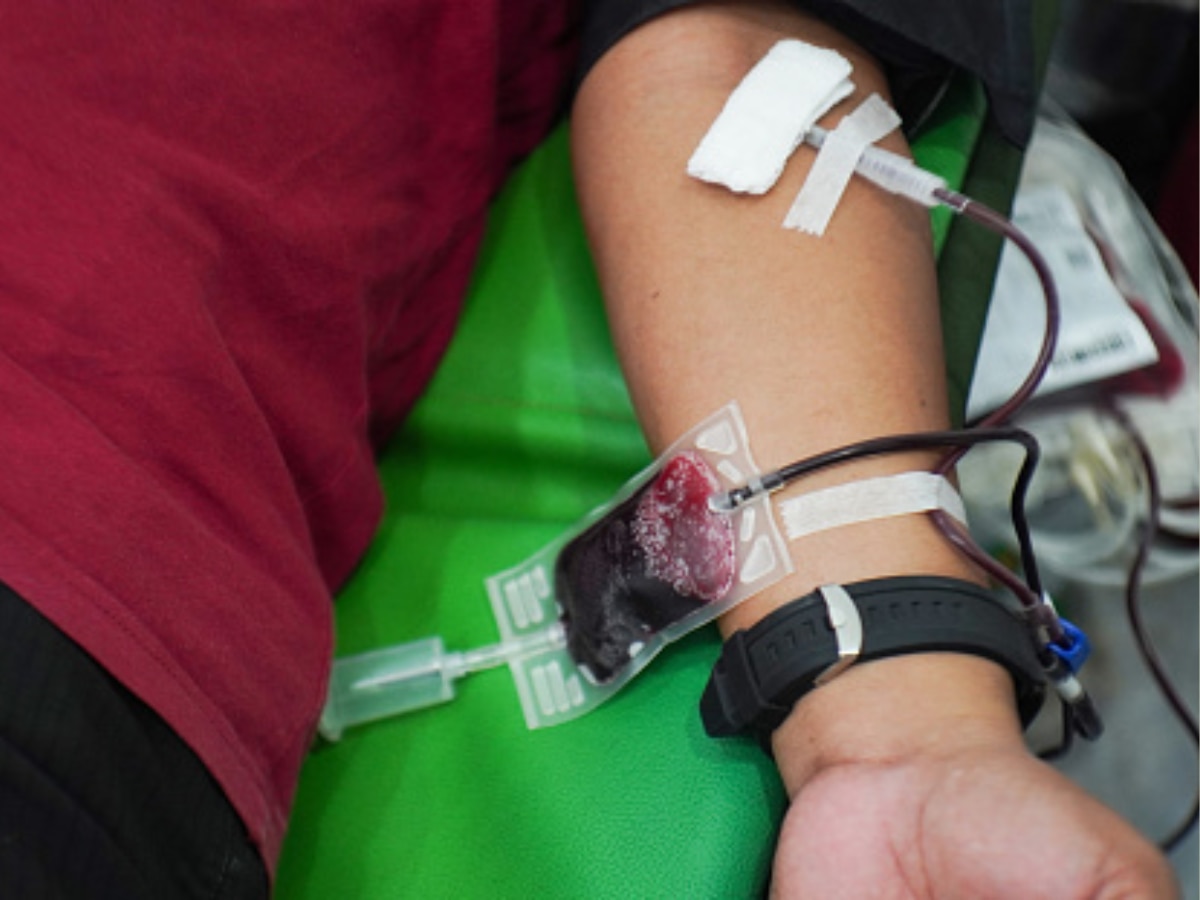World Blood Donor Day: Understanding Blood Transfusions, Safety, and Myths
Key Highlights :

Every year on June 14, World Blood Donor Day is observed to promote awareness of the need for safe blood and blood products and to express gratitude to the volunteers, and unpaid blood donors for their donations of life-saving blood. The theme for this year is 'Give blood, give plasma, share life, share often.' A blood donation happens when a person willingly allows their blood to be taken out and utilised for transfusions or fractionated to create biopharmaceutical drugs. Blood in its entirety or a specific component may be directly donated. Blood banks frequently take part in both the operations that come before and after the collection process.
All About Blood Transfusion:
A blood transfusion is a common medical treatment in which donated blood is administered to you via a small tube inserted into a vein in your arm. This potentially life-saving operation can assist in replacing blood loss as a result of surgery or injury. It can also be beneficial if an ailment stops your body from properly producing blood or any of its components.
Talking about the safety of blood transfusions, Dr Muralidaran C, Haematologist and BMT Physician Wockhardt Hospitals Mira Road said, "Blood transfusions are often without problems. When issues do arise, they are usually minor." Blood is made up of various components, including the red blood cells that transport oxygen and aid in waste removal, white blood cells that assist your body in fighting illnesses and platelets that help your blood clot correctly. Lastly, blood is also made up of plasma which forms the liquid component of blood.
Dr Muralidaran C further went on to say that a transfusion delivers the necessary component or sections of blood, with red blood cells being the most typically transfused and that one can also receive whole blood, which has all of the components, although such a case is uncommon to find. He also shared that although blood transfusions are otherwise safe, at times allergic responses can occur in the form of hives and itching, as well as fever.
Infections That Might Be Caused Due To Blood Donation:
Dr Muralidaran C said, "Diseases such as HIV or Hepatitis B or C are exceedingly rare since blood banks screen donors and test donated blood to limit the risk of transfusion-related diseases." "Other severe (though uncommon) responses can be an acute immunological hemolytic reaction. Because the donor blood type is not a suitable match, your immune system assaults the transfused red blood cells. The injured cells discharge a chemical into your bloodstream that causes kidney damage.", he further added.
Things To Keep In Mind Before Going For Blood Donation:
Dr. Sangeeta Pathak who is the Associate Director & Head of Transfusion Medicine at Max Super speciality hospital Saket shared some tips that are to be kept in mind before going for blood donation.
Have adequate food, including iron-rich foods as they help to maintain the hemoglobin level. Make sure you're drinking enough water before donating blood. Water helps you to keep hydrated and keeps your bodily functions in check. It will avoid the chances of low blood pressure. Make sure you haven't had a cold or flu in at least 72 hours. Don't smoke for at least two hours prior to donating blood as it falsely increases haemoglobin levels.
Eat A Good Meal:
Experts advise that you should never donate blood on an empty stomach. Try to eat a light but fulfilling meal before donating blood. Eat a healthy meal, avoiding fatty foods. Wear a shirt with sleeves that you can roll up above your elbows. You should have had a proper sleep the night before you have to donate blood.
You should also make sure to fulfil these criteria:
The age should be around 18-65. First-time donors shall not be more than 60 years of age, for repeat donors 65 years. Weight: The donor should not weigh less than 45 kg Pulse: The pulse rate of the donor should be normal (60 to 100 beats per minute) Body temperature: Normal body temperature is 98.6°F (37°C) Haemoglobin: It should not be less than 12.5 grams per deciliter Blood pressure: 100-140mm Hg systolic, 60-90 mm Hg diastolic with or without medications.
Last Donation Interval-
For whole blood donation-3 months for males and 4 months for females. After whole blood donation, plateletpheresis shall not be accepted for 28 days and vice versa. If reinfusion of red cells is not complete then the donor is not accepted for 90 days. No donation for 12 months after bone marrow harvest, within 6 months after a peripheral stem cell harvest.
Debunking The Myths Related To Blood Donation:
Blood donation is a simple act that creates a huge impact on the lives of needy patients. Many believe blood should only be donated when required, however, blood centre stock is often insufficient to meet daily demands and emergencies. Every minute is crucial for patient survival and regular donation is vital to sustain daily blood supply. Let us have a look at some myths that prevail behind blood donation.
In this regard, Dr Lincy Jacob, Consultant & Department Coordinator, Transfusion Medicine & Immunohematology, Dr L H Hiranandani Hospital, Powai, Mumbai debunked some myths prevailing to blood donation.
Myth 1: Blood Donation MAkes One Weak And Tired
Fact: Contrary to the myth, blood donation does not make one weak
